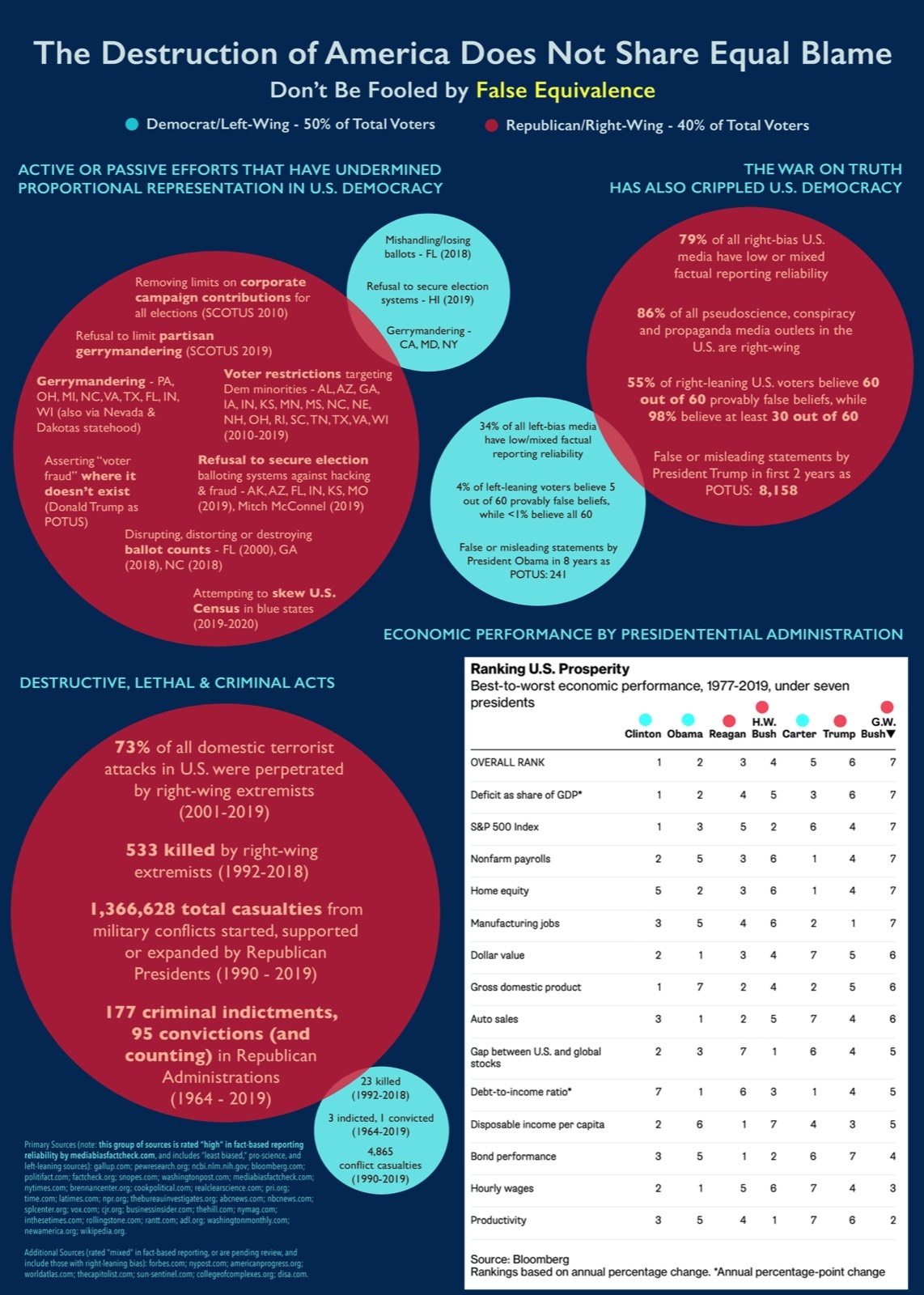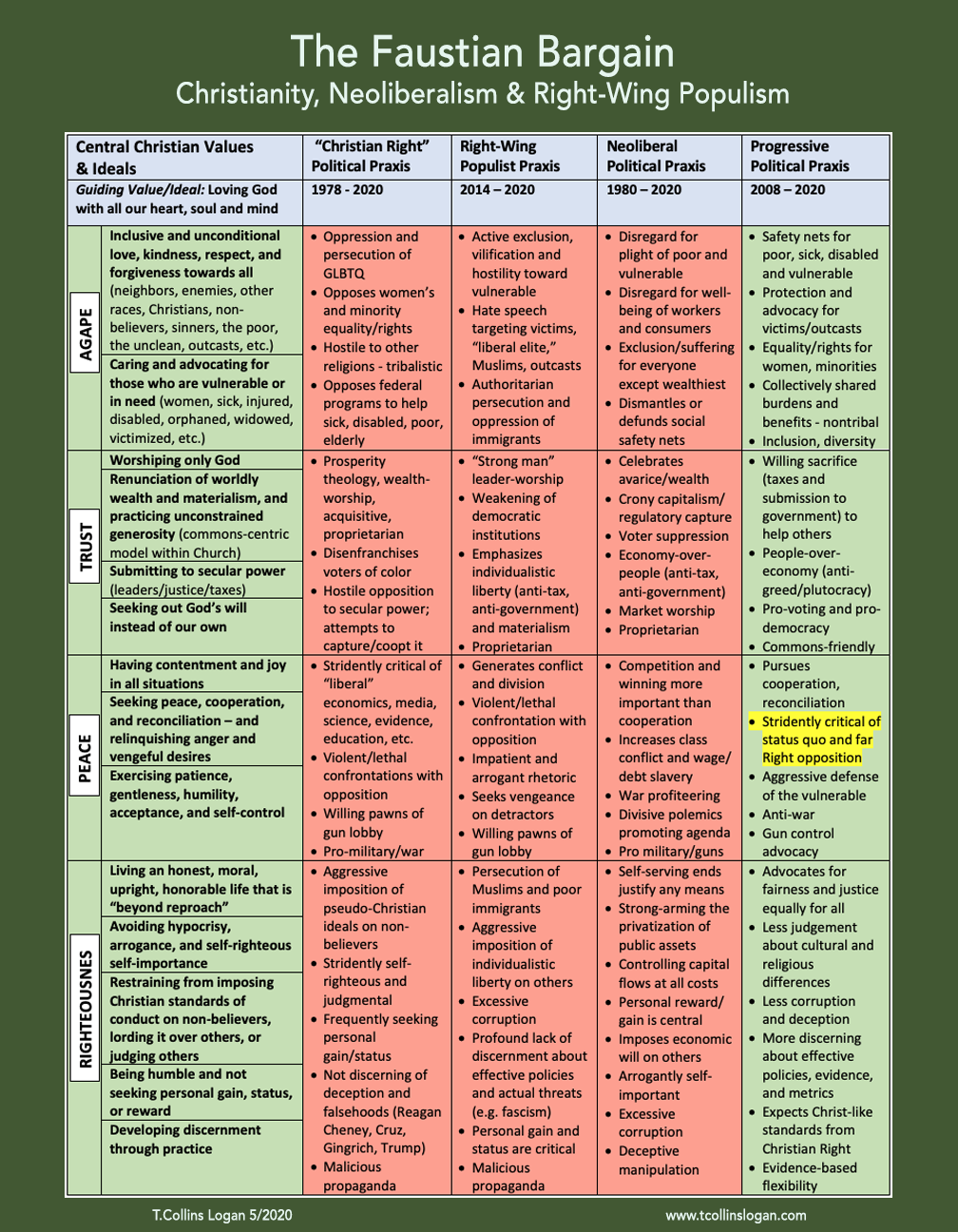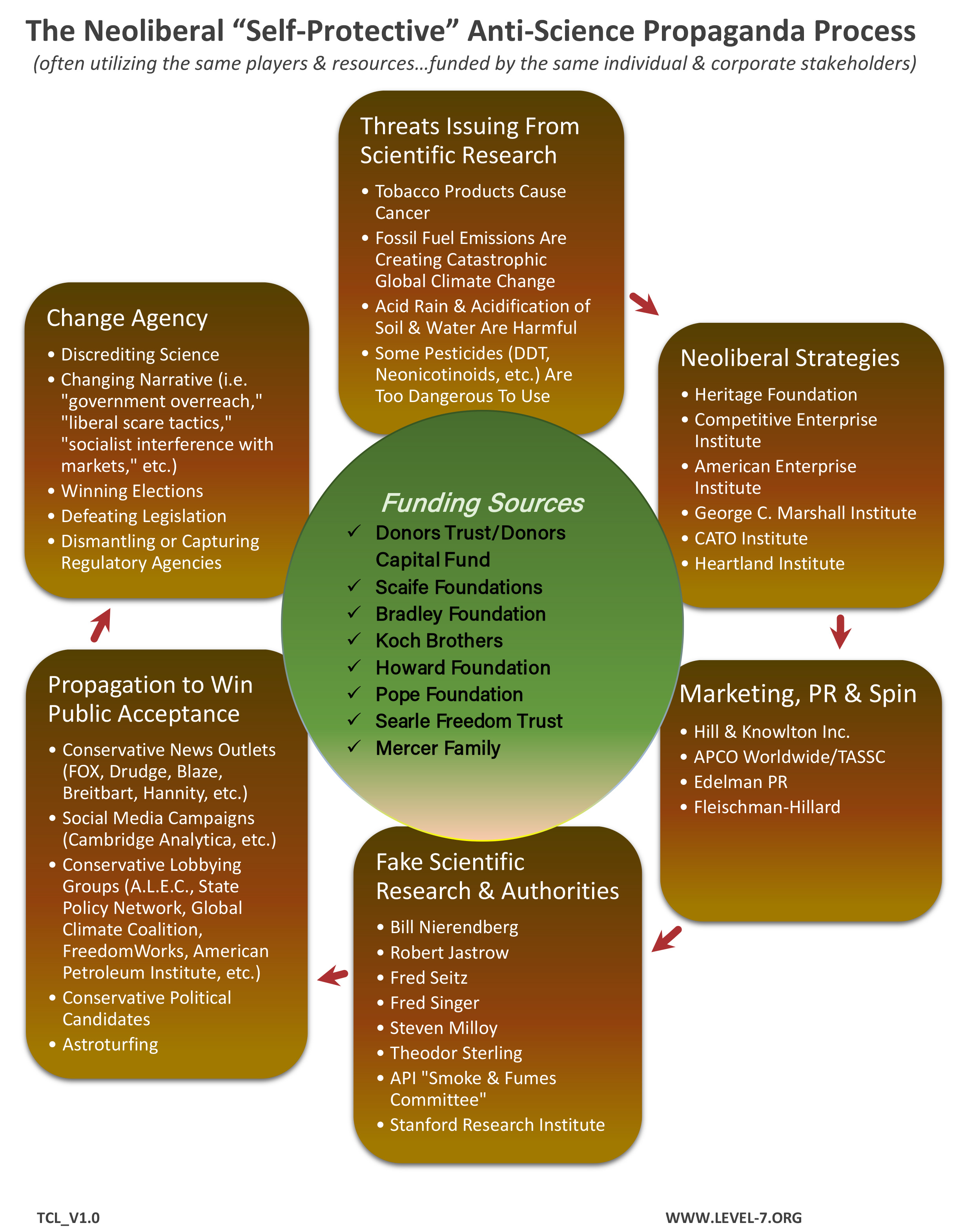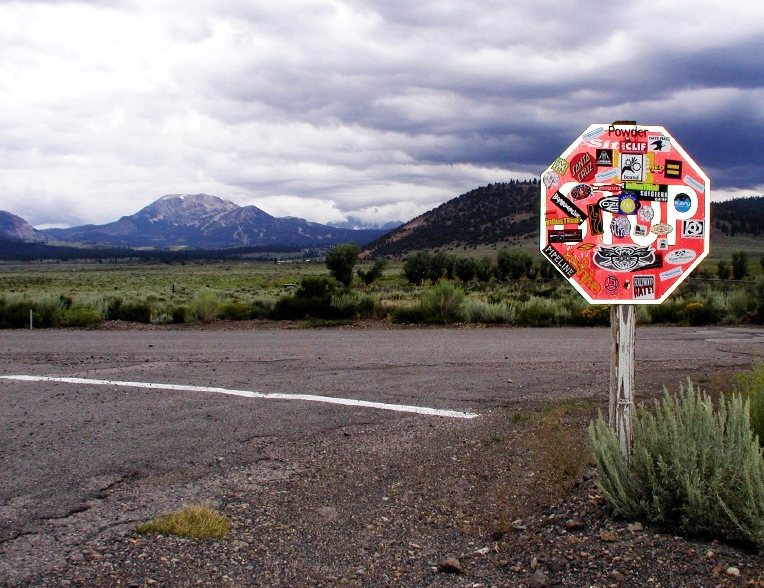
This past Friday, on Bill Maher’s last show of the year, he offered a simple recommendation for creating a more harmonious Thanksgiving for all of us:
DON’T DISCUSS POLITICS. Pick any other topic and discuss that instead,he exclaimed. And – at a time when our political discourse frequently descends into unhinged rants and hateful name-calling – I think he has a very good point. In fact, it might be a helpful idea to ask everyone coming together for a holiday gathering if they would commit to avoiding political topics and debates altogether during those special times. However, in the event that political topics do arise during your Thanksgiving celebration or other holiday (or even on your FB page), here are some tips on how to mitigate the more unfortunate elements of Republican Hive-Mind thought and behavior:
1.
Be a much-needed model for empathy, and affirm a conservative’s emotions, instead of engaging around facts. Nearly all of the pedantic rhetoric that circulates on Right-wing media and all social media is
emotionally based. Whether it comes in the form of blaming, conspiracy-mongering, stalwart patriotism, hate speech, self-victimization, dramatic exaggerations, “alternative facts,” anecdotes or personal narratives – whatever is being invoked as part of the propaganda,
it’s really all about generating a particular range of emotions. These emotions include pride, group loyalty, grief, anger, indignation, moral superiority, alienation, bewilderment, mistrust of outsiders…all of these and more can be tangled together in the Hive-Mind’s striving for a self-righteous sense of certainty. And as most of us who have tried to reason with our conservative friends have experienced, facts and evidence usually get angrily dismissed or disputed when these emotions are in play. At its core, contradicting Right-wing emotional narratives with facts can be both threatening and embarrassing for conservatives, often resulting in increasingly defensive and emphatic retorts. Essentially, they feel they must double-down on the initial emotion in order to maintain their convictions.
So when you witness the eye-roll, the red face, the frowning shaking of the head, the squint of anger, the arrogant thrust of chin, the pointing finger of accusation, flexing fists that clench at certitude, the flat tone of negation and denial…
recognize and affirm what is really going on. These are just irrational emotions, so treat them as such. This can be as simple as saying “You seem pretty upset about this,” or “I can see you feel very strongly about that,” or “It sounds like you don’t agree with what’s been going on,” and so on. By simply affirming their emotional state, you can diffuse escalation…at least a little. But remember, the toughest part may be stopping yourself from adding a rejoinder like “but did you know….” or “an interesting fact about that is…” or “that’s true, but there is another variable to consider….” None of these attempts to clarify a broader, more inclusive truth are likely to succeed. And this inability to engage in intellectually honest discourse can be upsetting until we realize what’s really going on: it is like attempting to reason with a flaming barrel of gasoline.
2.
Connect with common experiences and emotions. There is every reason to remain open, intimate and sharing with folks who have lost themselves in the Republican Hive-Mind. We are all human, and we all have more in common than what makes us different. And that commonality is where we can connect with almost anyone. I myself have one or two ultra-conservative friends, as well as some conservative-leaning family members, and I value those relationships because of our shared interests, shared experiences, shared enjoyment of each other’s company, and shared appreciation for how supportive and caring we can be for one another (in everything but our politics!). That connection, admiration and camaraderie does not need to be jeopardized by political differences. So turning to any area of mutual connection can be a peaceful balm and joy in the face of daunting political divides. The problem, of course, is that this connection may be more difficult to achieve with strangers or on the Internet – or with new invitees to our holiday celebrations. Which is why we must take special care to invoke that common ground as we get to know someone new.
3.
Make attempts to distract conservatives away from Hive-Mind delusions. Anyone paying much attention to Right-wing media over the past few decades will have noticed the lockstep conformance of propaganda across all such media into a profoundly unified groupthink. There is almost no deviation of opinions or attitudes around a given hot-topic-of-the-moment – or in the policies, views of history, attitudes about other cultures, favorite authorities, explanations for current events,
or even the preferred vocabulary that is used to describe conservative alternative realities. The continuity of conformance is stunning. This web of interconnected groupthink is so tightly woven, in fact, that we will hear the same phrases and assertions from different sources (and from our friends on Facebook) all around the U.S. on the very same day – often in the same hour. This is how the Republican Hive-Mind is maintained over time, because this synchronization results in a powerful “illusory truth effect,” where the endless repetition of falsehoods makes them seem true. The illusory truth effect is so powerful, in fact, that it can override preexisting knowledge we already have.
And this happens really fast – faster than most people can come to an informed opinion on a given topic. Which is why conservatives can be so confident and certain about their opinions so quickly. So…don’t follow them down that rabbit hole. Instead, change the topic to something you know isn’t in the conservative propaganda lexicon, and try to do so without contradicting them, once again affirming the emotional content of their opinions without revisiting familiar Hive-Mind topics.
4.
Remember that feeling provoked or belittled just goes with the territory – and don’t take it personally. Since it is fueled by strongly felt emotions, the Republican Hive-Mind will routinely attempt to arouse passions in others, prompt conflict-seeking attitudes, or encourage folks to become agitated and combative. Using phrases like “libtard;” or attacking public figures you admire or respect; or accusing people they are debating (or “all liberals,” as the case may be) of being uninformed, ignorant or brainwashed; or beginning their arguments with a harsh dismissal of something you know to be true…. All of these are standard tactics to put a perceived opponent off-balance, stimulate an emotional response, while at the same time facilitating quick agreement among those who support a conservative viewpoint.
But we just can’t take it personally! This isn’t about truth, remember, or even a coherent ideology. This is about proving loyalty to a particular set of values and ideals, or demonstrating membership in a conservative tribe, or daring others to cross the moat of irrational convictions that protects every conservative from facing uncomfortable truths. In the game of King of the Mountain that is constantly playing out inside the minds of devoted Republicans, such provocations are a kind of “defense through preemptive attack,” a way to feel safe, secure and protected inside of their delusions. In today’s supercharged discourse, this is a default starting position for a lot of folks. But you don’t have to join the fray. Although it can still hurt to be attacked, we don’t have to answer aggression with aggression. Instead, we can use humor to deflect accusations and antagonisms, or agree with some aspect of what is being said to diffuse the onslaught, or just point out calmly that, hey…this or that was kind of a hurtful, dickhead thing to say.
Now…anyone who has interacted with folks who are victims of cults, brainwashing or other forms of abuse will recognize some of these approaches.
That is because what is happening on the Right side of the political spectrum – as amplified by the “Trump Effect” – is a consequence of extreme stress, duress, fear and anxiety. Place anyone under similar strain, and they will start exhibiting behaviors that look a lot the consequences of emotional trauma. Unfortunately, conservative-leaning folks already have a hard-wired tendency to tolerate cognitive dissonance to a much higher degree than other groups – which means that what they believeto be true can exist much farther outside of actual, observable evidence. And when that evidence becomes more and more difficult to ignore (as with climate change, for example), such cognitive dissonance can amplify to toxic and disruptive “fight or flight” reflexes. Conservatives also exhibit a strong tendency to prefer black-and-white, simplified, easy-to-grasp explanations for “why things are” – reflexively opposing nuance and uncertainty – and in a world of increasing complexity, such desires often can’t be satisfied without unconscious or deliberate fabrication (what I call “misattribution of causation”). Add to this the real suffering that arises out of losing more and more social status and privilege in society – as most white men with traditional values, and especially those who live in rural areas, have been experiencing for decades in the U.S.A. –
and you have a formula for heightening real distress. Add to this tragedy that this distress has been capitalized upon by unscrupulous opportunists who seek power and wealth, and who then sell vulnerable conservatives on authoritative, Strong Man fixes.
In order to further their own agenda, those Strong Man carpetbaggers have made Republican distress a lot worse, perpetuating the cycle of abuse. The result is truly heartbreaking, and demands that we have compassion for conservatives who have been lied to, manipulated and encouraged to support agendas that are effectively amplifying their suffering. So yes, at this point in time, managing interactions with someone utterly lost in the Republican Hive-Mind is a lot like managing interactions with a volatile, severely abused person who is operating mainly form emotional reasoning and fear-based reflexes.
** But wait! What if someone who joins you for Thanksgiving or another holiday, or friends you on Facebook, just won’t cease in their combative political grandstanding, pedantry and debate?! **
Well…unfortunately this does happen. People who have been horribly mistreated often have trouble appreciating boundaries, or gaining clear awareness about their own behaviors, or responding to the techniques outlined above in a constructive way. It happens. So…what can we do?
1.
You can gently remind them of any agreement they have made to avoid discussing politics, be civil, etc. in your group activity. You could even implore them, out of a sense of friendship or familial bond with you, to let go of their need to discuss politics. Sometimes this works. Sometimes it doesn’t. But it’s worth a try!
2.
You could leave, or ask them to leave. When someone has worked themselves into a frenzy around a hotly contested Hive-Mind trigger, sometimes it’s a good idea to just exit the situation – or ask them to do so (if it’s hour home, or your Facebook page). That’s the unfortunate state of affairs we are in right now, where no amount of good intentions, patience, compassion or listening to the other side seems to make a difference in how the discourse progresses.
Hive-Mind propaganda is a powerful drug.
3.
You can wait patiently, quietly and passively for them to calm down. If everyone else in your gathering is also doing this, then a Hive-Mind rant can eventually run out of steam. But this may demand tremendous self-control on your part, since pretty much any reaction can be (and often is) misinterpreted by a conservative as judgement or dismissiveness. I’m always surprised how even the kindest, most well-intentioned responses can be twisted into a perceived attack. So…silence can truly be golden.
4.
Watch out for well-known tricks and techniques to suck others into a debate or confrontation. We’ve already touched on preemptive emotional attacks, but there are many other methods programmed into Hive-Mind thinking that can take over a conversation. Here are just a few of the more common hooks, many of which are rooted in what we call “logical fallacies:”
a. Making a reasonable opening statement that everyone can agree with, and then using it to justify a position that has nothing to do with that statement.
b. The pigeon-holing label game: “Are you a Marxist? Communist? Bleeding Heart Liberal? Intellectual? Atheist? Socialist?” and so on. This is the Hive-Mind’s way of trivializing and dismissing anything outside of its own groupthink, turning outsiders into simplified stereotypes. Once a label has been applied, the next step is claiming full knowledge of the outsider perspective: “So you believe that [fill in the blank].”
c. Feigning openness to having someone challenge, disprove or debate a Hive-Mind position, but then never allowing that person to actually do so (i.e. through constantly interrupting them, or debating accepted definitions of words, or challenging every point of logic, or talking more loudly over them, or dismissing widely accepted facts, or abruptly exiting the conversation, changing the topic, etc.).
d. Making an outrageous, one-sided, overly simplified or absurd claim to provoke a response, then declaring an unaccepting reaction as being “typical condescending Left-wing arrogance” (or the like). Even though the Hive-Mind adherent has initiated the provocation, they can immediately claim to be a victim of “liberal” prejudice.
e. Promoting false equivalence. For example, claiming that white supremacist hate speech is just as valid a form of free speech as someone advocating GLBTQ rights; or that the “liberal bias” of Left-leaning news media is no different than the outright lies of the Alt-Right conspiracy outlets; or that progressive academic, evidence-based approaches are just as flawed as the fake science funded by neoliberal think tanks; or that Democrat efforts to register new voters is just “the other side of the coin” of Republican efforts to disenfranchise those same voters; or that repealing Obamacare is just as complete a healthcare strategy as Obamacare itself; that Donald Trump’s relentless denigration of women, minorities, immigrants and the disabled is no different than Hillary Clinton’s reference to “deplorable” Trump supporters; and so on.
f. Overwhelming someone with a deluge of proposed facts, which are then combined in such as a way as to lead to a predetermined, ideologically conformist outcome. Lots of really smart, well-read conservative folks have used this technique to wear down progressives who don’t have the same depth of knowledge in a particular area (such as the history of military conflicts, or the evolution of natural monopolies, or the writings of conservative religious thinkers, or the intricacies of the Austrian School of economics, etc.). It’s effective, because a progressive can’t argue from a place of ignorance, and the information being presented can seem superficially valid. Unfortunately, the information often either isn’t valid, or doesn’t support particular conclusions the way the Hive-Mind has indoctrinated its members to believe – the dots don’t really connect in the way they are represented. But how would you know, if you’ve never studied all the writings of Ludwig von Mises? I can tell you from experience, however, that it won’t matter if you have studied a particular topic in-depth, because either you will have to accept the Hive-Mind groupthink on a given topic, or risk being branded a liberal heretic.
Lastly, even if you are surrounded by fellow progressive-minded folks on Thanksgiving, it can still be a good idea to avoid politics. After all, despite the encouraging Blue Wave of the midterm elections, there is still a lot of bad news coming out of Washington DC and elsewhere. The Trumpster Fire is still burning bright, and the political landscape remains pretty frustrating and depressing for even the most level-headed citizen. So again, perhaps picking another topic – any topic at all – to avoid politics at your Thanksgiving or holiday celebration will allow your meal to digest a little more easily, and your heart to remain light, merry, and brimming with fellowship.
Just my 2 cents.
Hope you have a Happy Thanksgiving.






